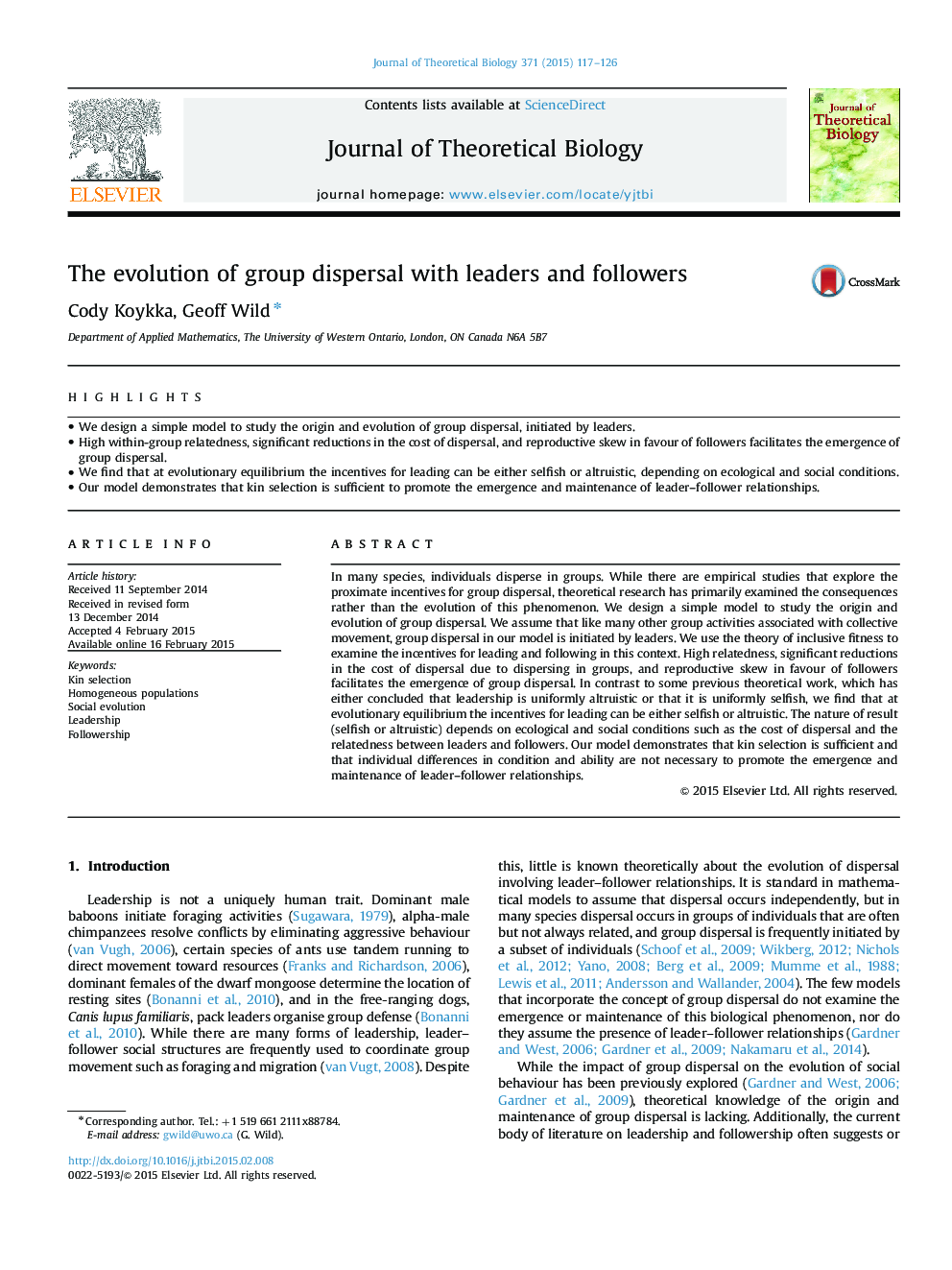| Article ID | Journal | Published Year | Pages | File Type |
|---|---|---|---|---|
| 6369788 | Journal of Theoretical Biology | 2015 | 10 Pages |
Abstract
In many species, individuals disperse in groups. While there are empirical studies that explore the proximate incentives for group dispersal, theoretical research has primarily examined the consequences rather than the evolution of this phenomenon. We design a simple model to study the origin and evolution of group dispersal. We assume that like many other group activities associated with collective movement, group dispersal in our model is initiated by leaders. We use the theory of inclusive fitness to examine the incentives for leading and following in this context. High relatedness, significant reductions in the cost of dispersal due to dispersing in groups, and reproductive skew in favour of followers facilitates the emergence of group dispersal. In contrast to some previous theoretical work, which has either concluded that leadership is uniformly altruistic or that it is uniformly selfish, we find that at evolutionary equilibrium the incentives for leading can be either selfish or altruistic. The nature of result (selfish or altruistic) depends on ecological and social conditions such as the cost of dispersal and the relatedness between leaders and followers. Our model demonstrates that kin selection is sufficient and that individual differences in condition and ability are not necessary to promote the emergence and maintenance of leader-follower relationships.
Related Topics
Life Sciences
Agricultural and Biological Sciences
Agricultural and Biological Sciences (General)
Authors
Cody Koykka, Geoff Wild,
